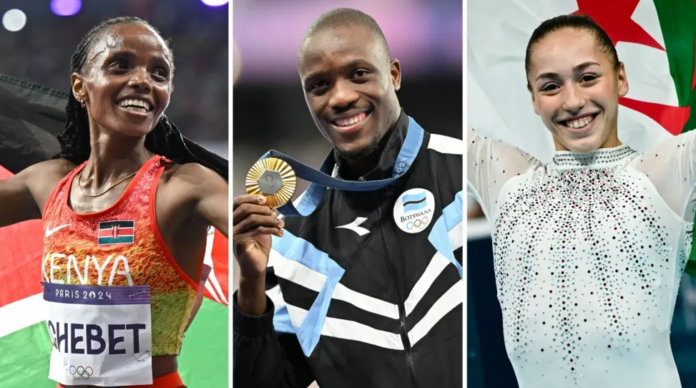The curtain has come down on Paris 2024, an Olympics in which Africa registered a slight improvement on its performance from Tokyo 2020.
The continent won a total of 39 medals – 13 gold, 12 silver and 14 bronze – spread across 12 nations, with Kenya the most successful with 11 podium finishes.
That is an increase of two medals on the tally in Japan three years ago but below the 45 which African competitors secured at Rio 2016.
So where can improvements be made in the next Olympiad before Los Angeles 2028?
The funding gap
One major area where Africa faces a disadvantage is in funding for facilities and support for athletes.
Compared to the most developed nations, the numbers are stark.
The team representing Great Britain and Northern Ireland, for example, was awarded just over £245m ($313m) for the Paris Olympic cycle – money which many African countries could only dream of spending.
The United States, meanwhile, boasts world-class facilities, a college system providing a pipeline of top-level talent in individual and team sports and huge sponsorship deals.
“Governments should release funds,” Nigerian badminton player Anuoluwapo Juwon Opeyori told BBC Sport Africa.
“They should engage or advise the private sector to support athletes. If the government does not take us seriously, they [the private sector] will not take us seriously.”
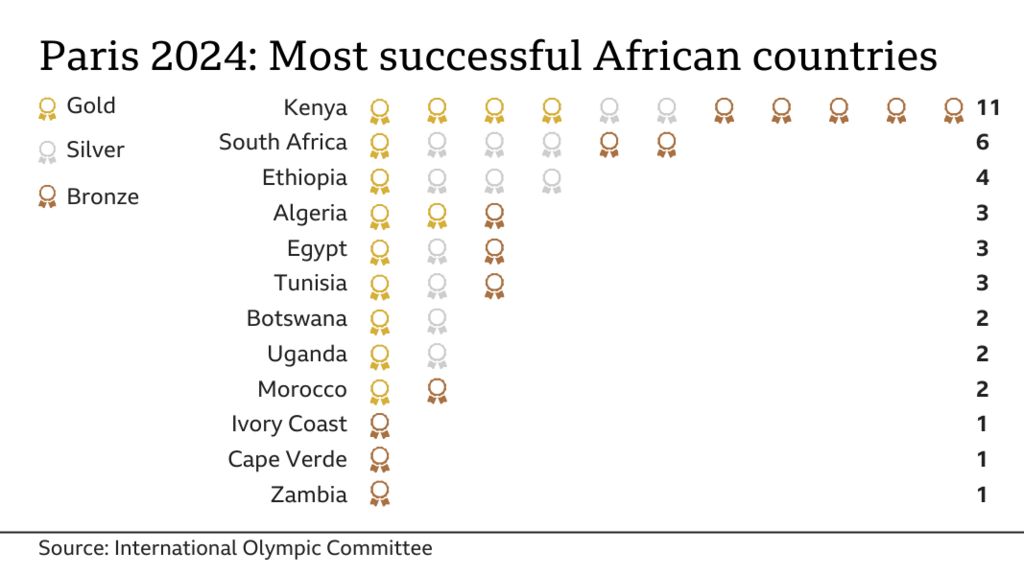
Egypt won just two medals at Paris 2024, picking up gold in the men’s modern pentathlon and silver in women’s weightlifting, but could be a sleeping giant.
The North African country has spent billions of dollars building sports complexes, partly with a view to bidding to host the Olympics in 2036 or 2040.
“Egypt is ready now,” Sharif El Erian, the secretary general of the country’s National Olympic Committee told the BBC earlier this year.
“The main support infrastructure has been developed.”
Egypt will host the next edition of the African Games in 2027 – but can it use its new facilities to develop a generation of medal contenders?
Elsewhere, a senior official from the Association of National Olympic Committees of Africa (Anoca) says the organisation will commit $2m to its athlete support programme before LA 2028 and a further $500,000 per year to fund centres of excellence.
Targeted action
Focusing on a particular discipline can bring rewards.
Botswana won its second successive medal in the men’s 4x400m relay in Paris – with South Africa and Zambia also in that final – and 200m champion Letsile Tebogo secured the country’s first ever gold.
“For us it is an amazing achievement. It will inspire athletes across the board,” Botswana athletics coach Justice Dipeba told BBC Sport Africa.
“It is something we have been working on. It takes time but with the little we have got we are able to match the world.”
Dipeba traces their 4x400m relay development back to Rio 2016, where Botswana finished fifth in the final, followed by a bronze in Tokyo and victories at the Commonwealth Games in 2022 and at the World Relays in May.
With certain team sports both difficult to master and notoriously unpredictable, specialisation is also an option to boost performance.
South Korea swept up every gold medal on offer in archery in the French capital, with no African making it past the first round.
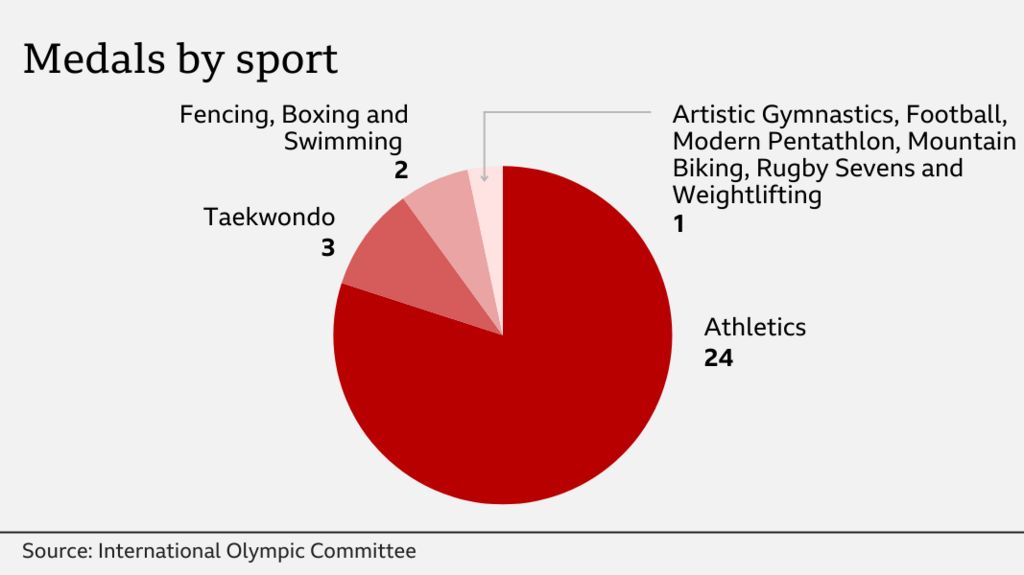 Image caption: The vast majority of Africa’s medals came in track events
Image caption: The vast majority of Africa’s medals came in track events
Meanwhile, Jo-Ane van Dyk’s silver in the women’s javelin was the only one of Africa’s 24 athletics medals which came away from track events or the marathon.
Most of the financial support the Potchfestroom-based 26-year-old received came from her parents – a situation which South Africa’s minister of sport, art and culture Gayton McKenzie has vowed to change.
“This nonsense will not happen under my watch,” he said in a message posted on X.
“I [want to] profusely apologise to all athletes that experienced [the] same. You have my absolute word that things will be much different and better for [our] athletes in future.”
The continent failed to reach the finals of the men’s long jump, women’s high jump and women’s triple jump and both men’s and women’s discus, hammer and pole vault competitions.
“We are going to see with our NOCs [National Olympic Committees] and technical experts on how we can have more engagement in field sports,” Anoca Secretary General Ahmed Hashim told BBC Sport Africa.
Hashim added that Anoca intends to improve school, youth and senior competitions across the continent.
Who in particular is struggling?
Nigeria, for starters.
Africa’s most populous nation departed Paris without a medal and last struck gold at Sydney 2000.
“We are all very disappointed and demoralised,” Opeyori, who was a flag bearer for the country at the opening ceremony, said.
“Our hope was high until the last minute.”
The country’s minister for sports development, John Owan Enoh, said their performance fell short of “objectives, expectations, and hopes of Nigerians”.
However, Enoh claimed that preparations for the Olympics had not been started when he was appointed to the role in August last year.
DR Congo, Tanzania and Sudan are also in the top 10 African countries by population and failed to get on the medal table, while contingents from Cameroon and Ghana also returned home empty-handed.
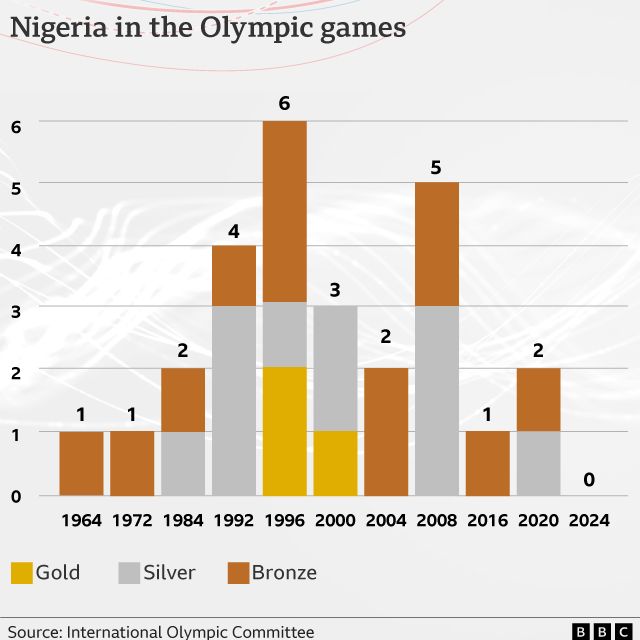 Image caption: Over the past 60 years Nigeria has come home from five editions of the Olympics empty handed: Mexico City 1968, Moscow 1980, Seoul 1988, London 2012 and Paris 2024
Image caption: Over the past 60 years Nigeria has come home from five editions of the Olympics empty handed: Mexico City 1968, Moscow 1980, Seoul 1988, London 2012 and Paris 2024
Africans representing other countries
Some nations have seen potential medallists slip through their fingers – with Annette Echikunwoke the stand-out example.
The hammer thrower was due to represent Nigeria in Tokyo three years ago but was ruled ineligible because of an administrative error.
Echikunwoke switched to compete for the USA instead and took a historic silver in the French capital.
Others have been tempted away. Salwa Eid Naser and Winfred Yavi both won medals for Bahrain, having represented Nigeria and Kenya at youth level respectively.
Refugees departing Africa and global migration is also a factor.
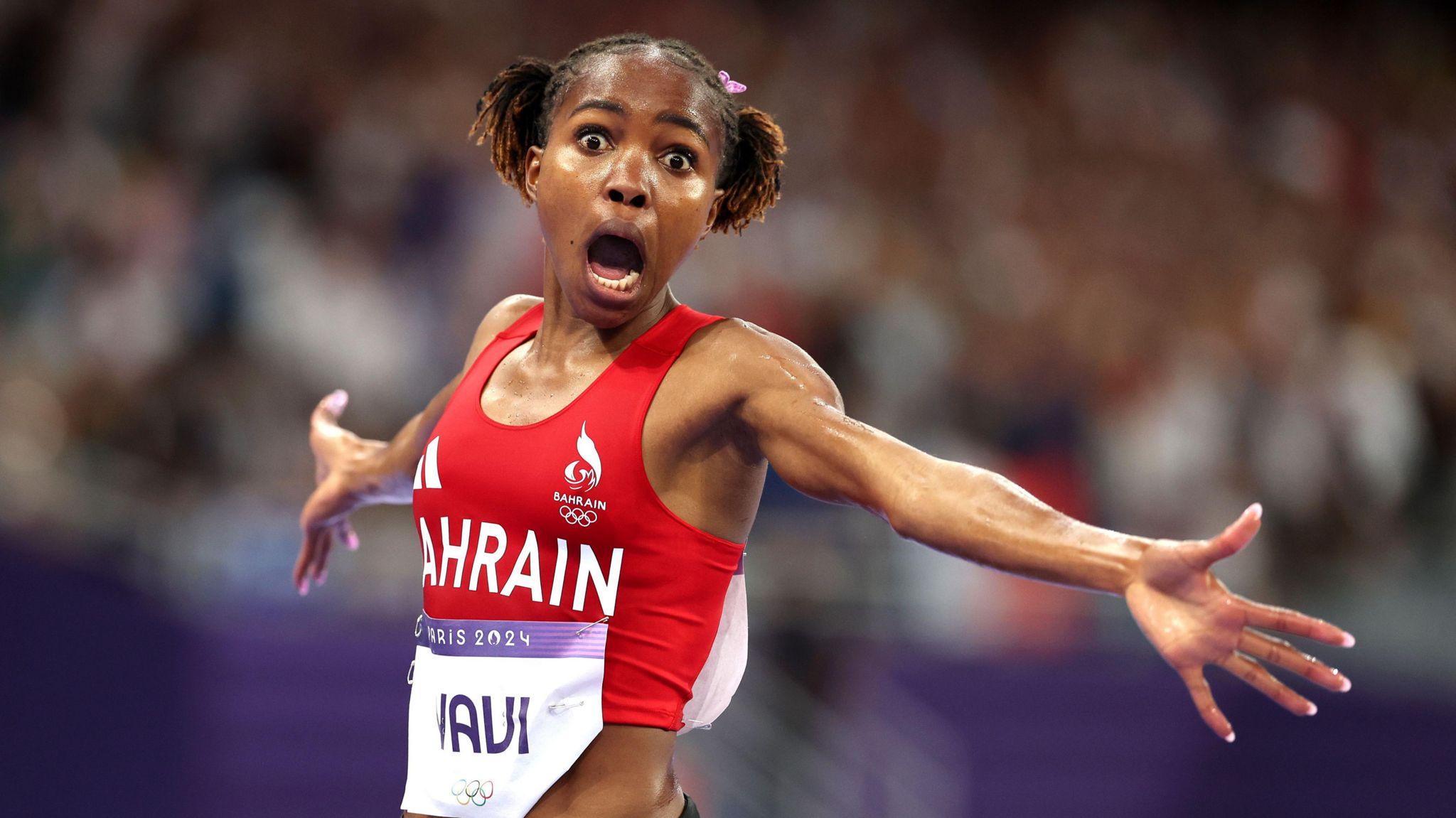 Image source: Getty Images
Image source: Getty Images
Image caption: Women’s 3,000m steeplechase champion Winfred Yavi switched to represent Bahrain after missing out on a place in Kenya’s team for the World Youth Championships in 2015
Ethiopia-born long-distance runner Sifan Hassan has won six Olympic medals for the Netherlands since claiming asylum and boxer Cindy Ngamba, who was born in Cameroon, picked up a first ever medal for the Refugee Team.
“A lot of African blood has been injected to different countries outside of the continent,” Anoca official Hashim said.
“There is a huge business siphoning these talents to other countries which maybe have better financial [capabilities] or better lifestyles.
“Maybe we need to improve the quality of preparation and quality of life [so] that these athletes may benefit.”
However, Algeria benefited from gymnast Kaylia Nemour coming the other way.
The 17-year-old turned her back on France, where she was born, to represent the country of her father instead and took gold in the uneven bars after a fifth-place finish in the all-around final.
Given the success of national football sides targeting the African diaspora to supplement their talent pool, could NOCs attempt to tread the same path?
What does the future hold?
It could prove difficult for Africa to make sweeping advancements in the next four years before LA 2028.
Tebogo and Nemour will be among those seeking to defend their titles in the USA, but South African swimmer Tatjana Smith, who has won four medals over the past two Games, has decided to quit the pool.
Yet teenage sprinter Bayanda Walaza offers promise after helping South Africa to silver in the men’s 4x100m relay.
Meanwhile, a number of sports being introduced in four years’ time could provide new opportunities.
Two of the top three men’s squash players and all three of the top three women’s players are Egyptian, while South Africa may target medals in T20 cricket.
However, the prospects of any success in lacrosse, baseball/softball and flag football appears much more distant.
Across Africa the biggest challenges remain in the early identification of talent, nurturing it once discovered and ultimately fulfilling that potential.

